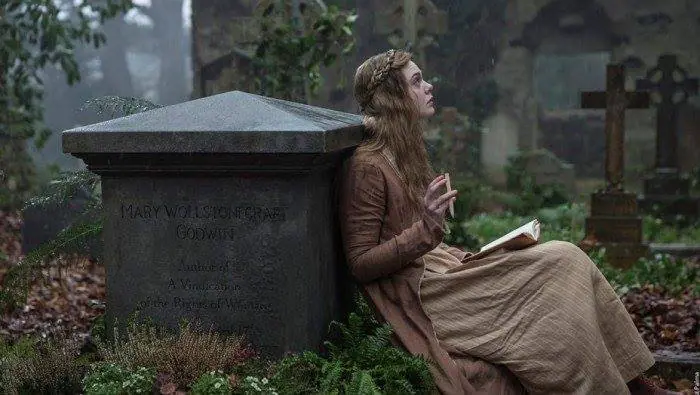Mary Shelley tells the true story of 18-year-old Mary Wollstonecraft Godwin (Elle Fanning) who falls for famous poet Percy Shelley (Douglas Booth,) and the spiral that brought Wollstonecraft-Godwin’s novel Frankenstein to life.
Directed by Haifaa Al-Mansour – a feminist-icon in her own right – who is recognized as the first female Saudi-Arabian filmmaker. As the daughter of a poet, a literary scholar, and with this being her first film to direct legally outside of Saudi Arabia as a woman – this debut is emblematic.
https://www.youtube.com/watch?v=deBE8dhQllI
The story of Mary Shelley that’s behind Frankenstein is harrowing and devastating. Those who know it will walk out of the theatre feeling like an alienated creature all over again; those of you who know nothing will be devastated.
The beginning of the film moves at an accelerated pace, making it difficult for the audience to feel an attachment to the characters. The couple is smitten too fast. It leaves the script feeling like cheesy fanfiction written by a 13-year-old.
It’s clear the first half of the film was meant to be groundwork to get to the real story: the conception of Frankenstein. It feels as though the producers were students who didn’t put as much effort into the introduction of their essay, as the body paragraph.
Elle Fanning portrays Shelley; starting out as young, naïve, hopeless-romantic who blossoms into a powerhouse. She takes the reigns of her own life. It’s a stunning character development. As an American actress, her English accent execution is spotless to my Canadian ear.
You can feel the heartfelt bond between Shelley and her younger sister, Claire (Bel Powley.) Throughout the film, I almost felt like I would have preferred a film on their relationship alone. Scenes with female characters are often filled with quick-wit that leaves any modern feminist amused.
Mary Shelley’s husband, Percy Shelley, is played by Douglas Booth; while it’s clear he was chosen as an attractive and dramatic period-actor (seen in the latest installment of Romeo and Juliet,) it’s confusing whether he is supposed to be a likable character or not. His friend – and Claire’s lover – the problematic Lord Byron (Tom Sturridge) is detrimental to the story of Frankenstein and arguably the most fantastical character in the film; making nickels and dimes you spent on the ticket worth it.
Game of Thrones fans can look forward to a bizarre Maisie Williams cameo as Mary’s friend, Isabel Baxter, who had too much screen time. Her scenes were one of the loose ends the film failed to tie up in the end.
Taking place in the early 19th century, set designs were sublime. The interior of every scene, from the furniture to the wallpaper, to bookshelf contents to cobwebs were all carefully selected by colour and precariously placed. Costumes alike were art to the eyes and a subtle portrayal of class structure.
This film had all the ingredients to push the limits – not in the right order. While I think fans of Shelley and her work will find that in this portrayal of her the ending is light and fails to encompass the melancholy of her life.
But that’s show-biz, baby.
Rating: 3/5 Stars


Recent Comments